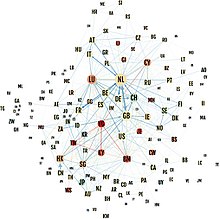Definitions

FSF–IMF approachedit
In April 2000, the Financial Stability Forum ("FSF"),d concerned about OFCs on global financial stability produced a report listing 42 OFCs. In June 2000, the IMF published a working paper on OFCs, but which also proposed a taxonomy on classifying the various types of global financial centres, which they listed as follows (with the description and examples they noted as typical of each category, also noted):
The IMF noted that the three categories were not mutually exclusive and that various locations could fall under the definition of an OFC and an RFC, in particular (e.g. Singapore and Hong Kong were cited).
Rationale for OFCsedit
The IMF noted that OFCs could be set up for legitimate purposes (listing various reasons), but also for what the IMF called dubious purposes, citing tax evasion and money–laundering. In 2007, the IMF produced the following definition of an OFC: a country or jurisdiction that provides financial services to nonresidents on a scale that is incommensurate with the size and the financing of its domestic economy. The FSF annual reports on global shadow banking use the IMF definition to track the OFCs with the largest financial centres relative to their domestic economies.
Progress from 2000 onwards from IMF–OECD–FATF initiatives on common standards, regulatory compliance, and banking transparency, has reduced the regulatory attraction of OFCs over IFCs and RFCs. Since 2010, academics considered the services of OFCs to be synonymous with tax havens, and use the term OFC and tax haven interchangeably (e.g. the academic lists of tax havens include all the FSF–IMF OFCs).
In July 2017, a study by the University of Amsterdam's CORPNET group, broke down the definition of an OFC into two subgroups, Conduit and Sink OFCs:
- 24 Sink OFCs: jurisdictions in which a disproportionate amount of value disappears from the economic system (e.g. the traditional tax havens).
- 5 Conduit OFCs: jurisdictions through which a disproportionate amount of value moves toward Sink OFCs (e.g. the corporate–focused tax havens)
(Conduits are: Netherlands, United Kingdom, Switzerland, Singapore and Ireland)
Sink OFCs rely on Conduit OFCs to re–route funds from high–tax locations using base erosion and profit shifting ("BEPS") tax planning tools, which are encoded, and accepted, in the Conduit OFC's extensive networks of global bilateral tax treaties. Because Sink OFCs are more closely associated with traditional tax havens, they tend to have more limited treaty networks and access to global higher–tax locations.
Comments
Post a Comment